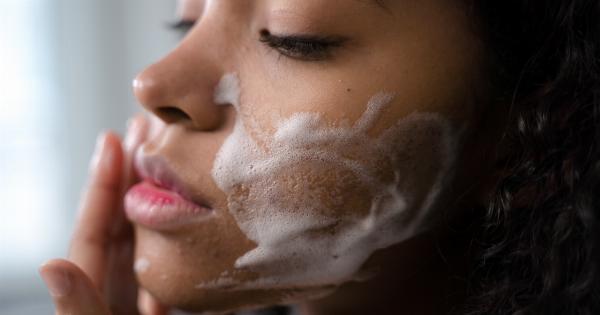Glowing skin is something we all aspire to have. An important step in achieving that radiant complexion is regular facial exfoliation. Exfoliation helps to remove dead skin cells, unclog pores, and promote a healthier-looking skin.
However, it’s crucial to follow some rules to ensure that you exfoliate effectively and without causing any damage to your skin. In this article, we will discuss five key rules for facial exfoliation that will help you achieve the glowing skin you desire.
1. Choose the Right Exfoliator
When it comes to exfoliation, it’s essential to select the right product for your skin type. There are two main types of exfoliators: physical exfoliators and chemical exfoliators.
Physical exfoliators contain granules or beads that physically slough off dead skin cells. Chemical exfoliators, on the other hand, use ingredients like AHAs (alpha-hydroxy acids) or BHAs (beta-hydroxy acids) to dissolve dead skin cells.
If you have sensitive or acne-prone skin, it’s best to opt for a chemical exfoliator as physical exfoliators can sometimes be too harsh and cause irritation.
However, if you have normal skin, a physical exfoliator can be a great option for achieving soft and smooth skin.
2. Exfoliate Gently
One common mistake people make when exfoliating is being too harsh on their skin. Remember, exfoliation is meant to remove dead skin cells, not scrub your face vigorously.
Over-exfoliating can strip your skin of its natural oils and lead to dryness, redness, and even breakouts.
To exfoliate gently, apply your chosen exfoliator in gentle, circular motions. Avoid applying too much pressure or using harsh scrubbing motions. Let the exfoliator do the work and be gentle with your skin.
If you notice any signs of irritation during or after exfoliation, reduce the frequency of exfoliation or switch to a milder exfoliator.
3. Pay Attention to Frequency
The frequency of exfoliation depends on your skin type and the type of exfoliator you’re using. Generally, it’s recommended to exfoliate 2-3 times a week for most skin types.
However, if you have sensitive skin, you might want to reduce the frequency to once a week or every other week.
Over-exfoliating can disrupt your skin’s natural balance and cause irritation. Similarly, under-exfoliating may not give you the desired results. Finding the right balance is key to achieving glowing skin without harming your skin’s health.
4. Avoid Exfoliating Active Breakouts
While exfoliating can help prevent and manage breakouts, it’s important to avoid exfoliating over active acne lesions. Exfoliating these areas can aggravate the breakout, cause inflammation, and potentially lead to scarring.
If you have active breakouts, focus on spot treating them with suitable acne treatments and wait for them to heal before resuming regular exfoliation.
However, if you have acne-prone skin without any active breakouts, exfoliation can be an excellent preventive measure to keep your pores clear and reduce the likelihood of future breakouts.
5. Moisturize and Protect
After exfoliating, it’s crucial to moisturize and protect your skin. Exfoliation removes dead skin cells, which can leave your skin more vulnerable to environmental aggressors.
Therefore, it’s essential to replenish your skin’s moisture and provide it with adequate protection.
Use a hydrating moisturizer suited for your skin type to lock in moisture and restore the skin’s barrier function. Additionally, always follow up with a broad-spectrum sunscreen with at least SPF 30 to shield your skin from harmful UV rays.
Remember, exfoliation is just one part of a comprehensive skincare routine. To achieve glowing skin, it’s important to complement exfoliation with a balanced diet, regular exercise, plenty of hydration, and a consistent skincare regimen.



























